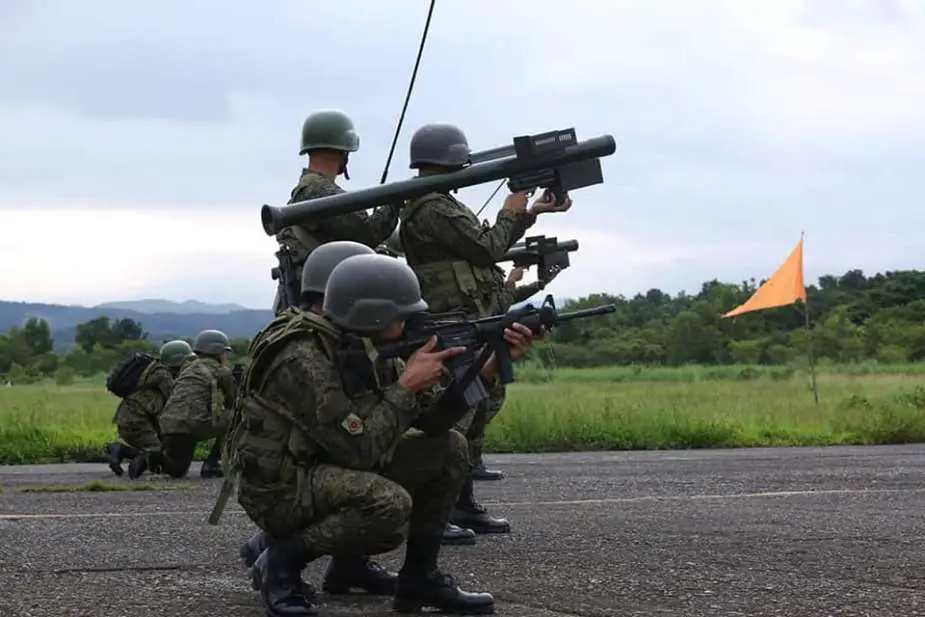Philippine Army moves forward with acquisition of Man-Portable Air Defence Systems
As part of its modernization initiative, the Philippine Army has undertaken steps to acquire Man-Portable Air Defense Systems (MANPADS), aiming to enhance its currently limited air defense capabilities. These mobile systems protect critical infrastructures such as the presidential palace and other essential facilities.
Follow Army Recognition on Google News at this link

Philippine Army training with FIM-92 Stinger Man-Portable Air Defense Systems. (Picture source: Philippine Air Force)
The MANPADS acquisition project for the Philippine Army plans to purchase ten units, funded by the Philippine Army's investment budget for the fiscal year 2024, amounting to PHP 381,621,000. Although the acquisition method and the winning supplier remain confirmed, this project demonstrates the army's commitment to improving its defense against air threats.
Man-Portable Air Defense Systems (MANPADS) are essential military equipment that provides a compact and mobile air defense capability, allowing individuals or small teams to intercept low-altitude air targets, such as airplanes and helicopters. By offering close protection for ground troops, convoys, and strategic infrastructures, MANPADS increases the flexibility and responsiveness of armed forces to air threats. Their deterrent role and their complementarity with heavier air defense systems are crucial for military security. However, their effectiveness depends on proper operator training and maintenance.
Historically, the Philippine Army has suffered from a lack of air defense capabilities, relying on anti-aircraft guns inherited from the United States after World War II, which have since been retired from service. Currently, it lacks any specific air defense system, except for a few MANPADS held by the Presidential Security Group (PSG), a unit of the Armed Forces of the Philippines. Previous efforts to acquire new MANPADS under the Horizon 2 phase of the AFP Modernization Program did not materialize, leading to a reevaluation and the introduction of a separate project for a Short Range Air Defense System (SHOADS) under the Horizon 3 phase, starting from 2023.
This specific project aims to quickly equip the Army with air defense systems, starting with MANPADS, and to integrate them into specific Army units that will be responsible for air defense in the future. The necessity and urgency of this acquisition, despite the small number of units involved and without waiting for the SHORADS project of the Horizon 3 phase, are particularly evident.
Among the models considered for this project are the MBDA Mistral 3, already in service with the Philippine Navy; the Raytheon FIM-92 Stinger, used by the Philippines' treaty ally, the United States; the LIG Nex1 Chiron from South Korea; the Thales Starstreak Mk. II, favored by the British armed forces; and the Mesko Piorun NG from Poland, an improved version of the Grom missile. These models were previously considered in the Horizon 2 phase, and their selection for this new project remains to be determined.
This initiative marks a key step in the Philippine Army's effort to modernize and strengthen its defense capabilities, in response to contemporary security challenges. The final selection of MANPADS systems will reflect the specific needs of the army in terms of mobility, efficiency, and the ability to protect critical national infrastructures from air threats.
- Hits: 4327
















